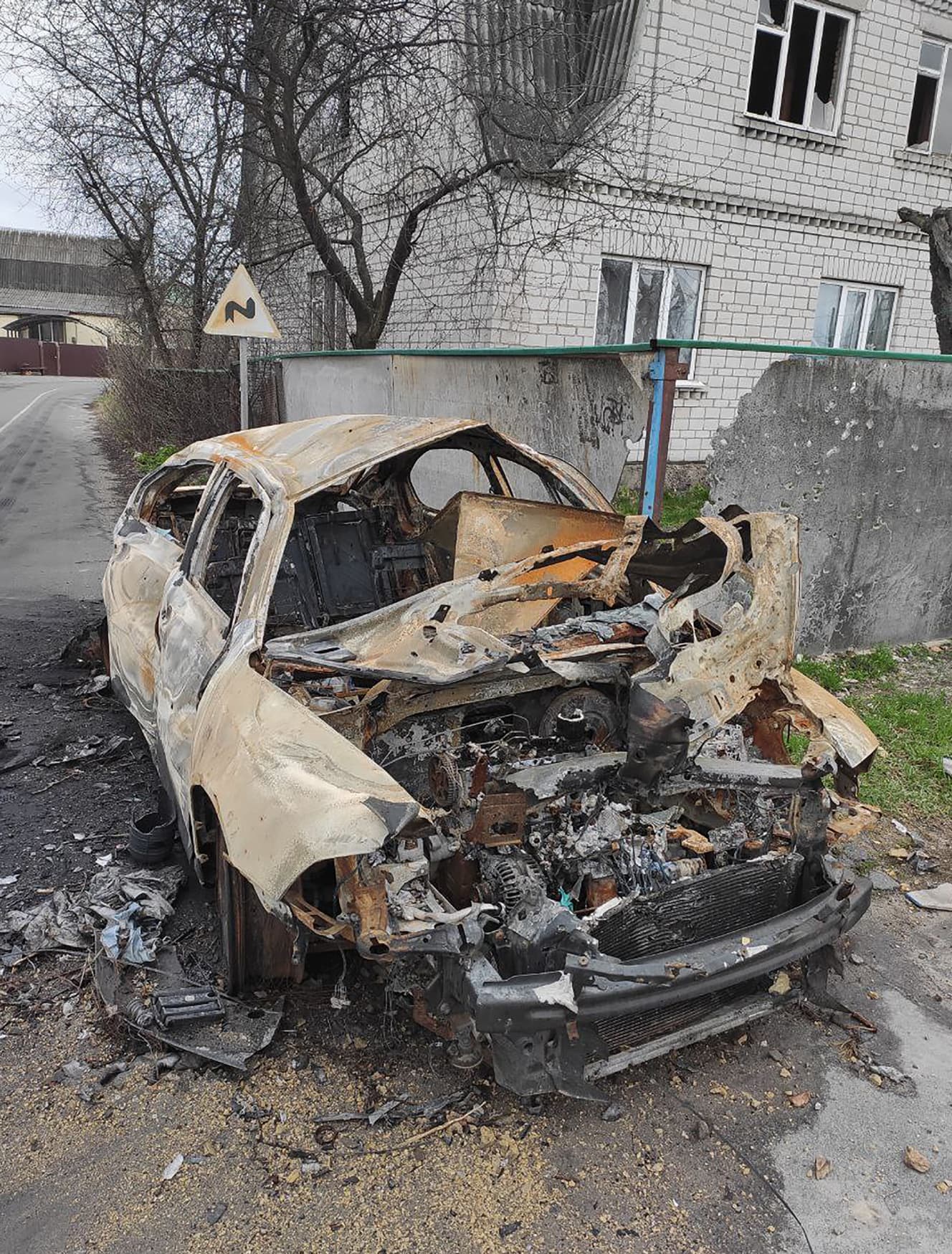Some women were raped near their sons… Bucha, the city of massacres: 3 months of reconstruction

While conducting an interview in a tent where children were playing, I heard a loud explosion nearby. When I was startled, a child silently pointed to a poster with a landmine on it. It was a bizarre situation, as the children had grown accustomed to the sound of landmine explosions.”
At the end of February this year, Russian troops invaded Bucha near Kyiv, the capital of Ukraine, and occupied the town for a month. Photojournalist Shotaro Onodera entered the area in June of this year. For the next three months, he captured with his camera the town of Bucha and its people, who still bear the scars of the war.
In the city center, Mr. Onodera witnessed men burying unidentified bodies in a public cemetery. Since the names were unknown, the grave markers were marked with three-digit serial numbers. After several coffins (hitugi) were placed in the holes they dug, they were covered with soil using bulldozers.
The propaganda that there was no massacre at Bucha is still spreading all over the world. If that were the case, there wouldn’t be so many unidentified bodies buried in the streets. I heard the story of Yelena, whose mother-in-law was shot to death by Russian soldiers during the occupation. The Russian soldiers did not even allow Yelena to bury her mother-in-law’s body in the cemetery.”
A series of heartbreaking testimonies about the brutal behavior of the Russian soldiers were raised one after another in the area. Irina was living with her son when a Russian soldier, about the same age as her son, suddenly entered their house. When they fled to the basement, the Russian soldier demanded, “Come out, women only. When Irina came out, the Russian soldiers robbed her of the $1,000 she had hidden and then led her to an abandoned house next door and sexually assaulted her, telling her to “show them around.
After assaulting her, the Russian soldiers left as if they were fleeing. When Irina met her son again in the basement, he asked her if she was safe, but she could not answer that she had been raped by a Russian soldier about the same age as her son. She says she still has nightmares some days.”
We were still lucky.”
The people of Bucha mourned their loved ones and suffered deep emotional and physical scars. Six months after the Russian army withdrew from Kyiv, the wounds have not healed. The residents of Bucha say, “We don’t know what will happen tomorrow, so we are just struggling to live each day.
The town of Khostel, next to Bucha, had an airport with an air force base, so it was subjected to an onslaught by the Russian military, which also inflicted heavy damage on civilians. The house of a family living in the town was shelled and reduced to rubble, leaving only the outer walls. The car in which the family’s grandfather had driven to evacuate the family was attacked by Russian soldiers and burned to the ground. Nevertheless, the family decided to rebuild in order to live in the same place.
He rebuilt the bricks on the outside of the garage by himself, and his wife began to cultivate the land that had been saved and began to grow a field in preparation for the harsh winter. The house was destroyed, but we can make a new life for ourselves. We were still lucky,” the couple said. On the other hand, “I really don’t know what the Russians want,” they said.
We interviewed a mother who said that one of her sons lost his life under torture, and her other son was seriously wounded. She said that her sons were attacked while they were volunteering as civilians. If they hadn’t done anything, they might have been safe. But the mother said, ‘I don’t have time to be sad, I have to be strong to take care of my son who will one day come back from his sickbed. Rather than looking forward, some residents are forced to look forward.”
Lights and children’s smiles are returning to the streets of Bucha. Meanwhile, President Vladimir Putin is threatening to increase the number of troops and use nuclear weapons, and the war appears to be protracted. What right does he have to threaten the residents who are struggling to rebuild?









FRIDAY, October 14, 2022
Photo: Shotaro Onodera (photojournalist)